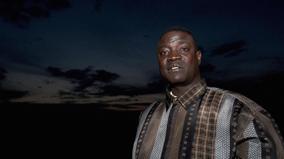New release
Coming
None
Jade
2010
14 min
Leaving soon
Et si les blancs formaient les minorités visibles victimes de discrimination raciale en milieu de travail? Voyez ce qui se produirait dans Jade, un documentaire incisif et humoristique qui vous incitera à discuter de racisme et de discrimination.

Details
Et si les blancs formaient les minorités visibles victimes de discrimination raciale en milieu de travail? Voyez ce qui se produirait dans Jade, un documentaire incisif et humoristique qui vous incitera à discuter de racisme et de discrimination.
-
directorCal Garingan
-
producerAlexandra Yanofsky
-
delegate producerAisling Chin-YeeMarie-France Côté
Education
Ages 14 to 16
School subjects
Students list instances of racism in the film followed by small group discussion/pair share. Discuss as group intentions of this documentary to illustrate racism through role-reversal. IS IT effective? How? Students research anti-racism policies in their own school and communities/province/country, followed by report on history of racism policies in Canadian workplaces. Students prepare a report or presentation; write a mocumentary of their own or sketch in front of the class after writing own racism role-reversal story.
















